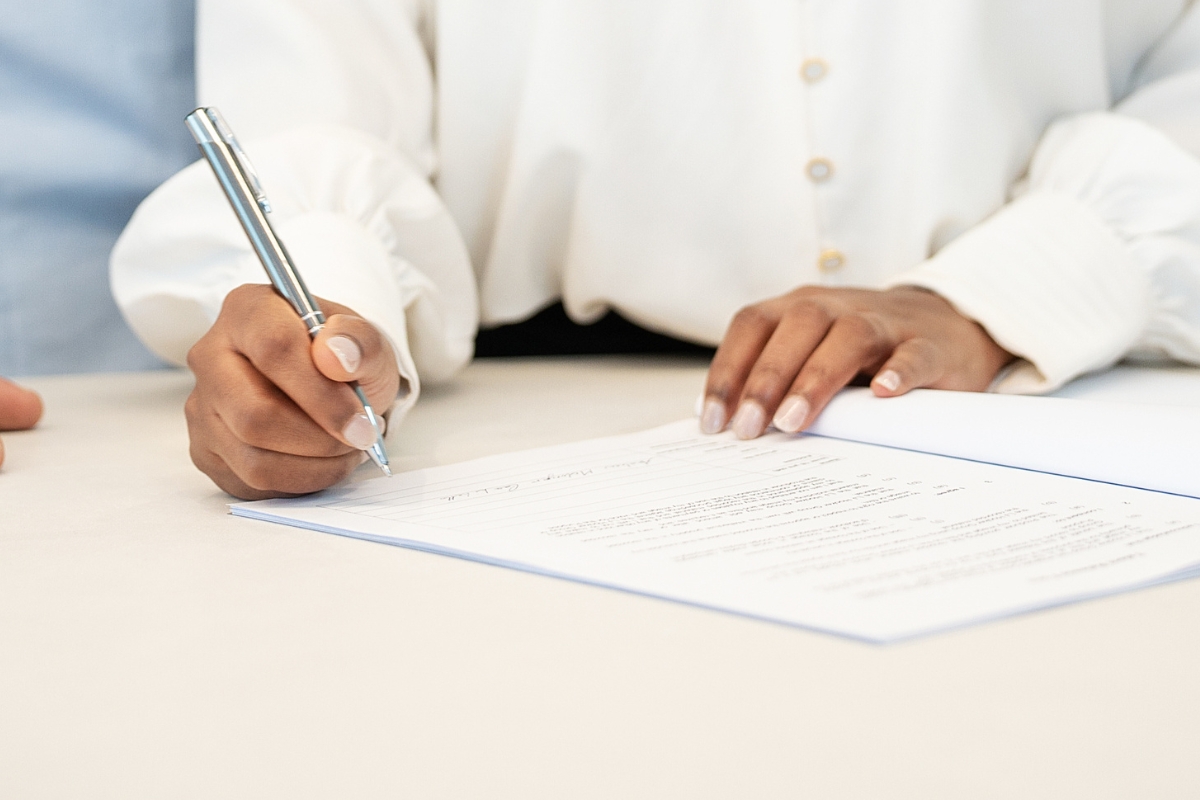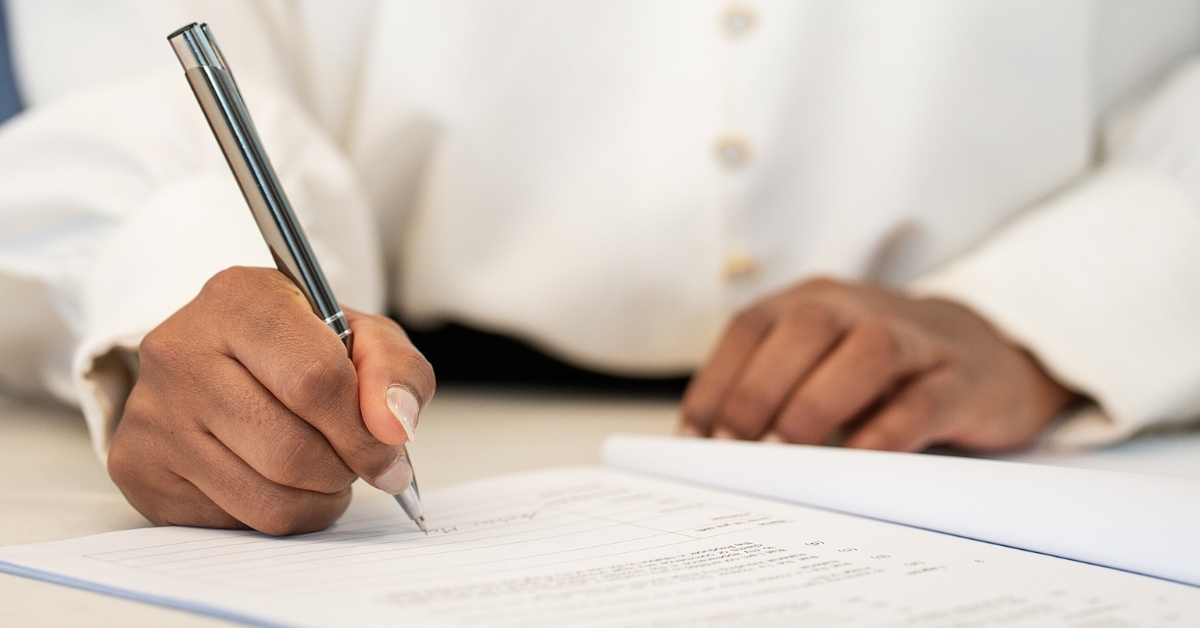Conveyancing - Settlements

Conveyancing is the process of transferring ownership of property from one person or entity to another. While you are able to act on your own when making a property purchase, the process of documentation and settling can be complicated - and may seem daunting. Bringing in support and assistance from an expert such as a conveyancer or lawyer who is familiar with legal documents and legislation can make the process easier
What is conveyancing?
Conveyancing is the process of transferring ownership of property from one person or entity to another.
A typical conveyancing transaction consists of the following stages;
- Before contract
- Before completion
- After completion
While you are able to act on your own when making a property purchase, the process of documentation and settling can be complicated - and may seem daunting. Bringing in support and assistance from an expert such as a conveyancer or lawyer who is familiar with legal documents and legislation can make the process easier.
What is a conveyancer?
A conveyancer is someone who is licensed to undertake property conveyancing work and to do legal work or give legal advice about the transfer of title.
Conveyancers can be engaged by a seller to prepare the vendor’s statement and other legal documentation, such as the contract of sale. They can be engaged by a buyer to check the vendor’s statement, advise on the terms and conditions in the contract of sale and conduct searches. Both the buyer and seller engage different conveyancers.
Licensed conveyancers must have professional indemnity insurance. It is important to get written quotes before choosing a legal practitioner or conveyance. What does a conveyancer do for a buyer?
- Prepare, clarify and lodge legal documents such as a contract of sale, vendor statement, and memorandum of transfer
- Research the property and its certificate of title - check for easements, type of title and any other information that needs addressing
- Put the deposit money in a trust account
- Calculate the adjustment of rates and taxes
- Settle the property - act on your behalf, advise you when the property is settled, contact your bank or financial institution on when final payments are being made
What does a conveyancer do for a seller?
- Complete and ensure the legal documents such as the sale contracts are all produced and available
- Represent you and respond to requests from the buyer - for example, request to extend dates, title questions, etc
Questions to ask when choosing a conveyancer
- Are you a member of the Australian Institute of Conveyancers?
- What types of property do you mainly specialise in?
- What will it cost - what are your fees and charges? What fees, etc, will I have to pay at settlement? Are there any hidden costs?
- How will you communicate with me and how often?
- On settlement day, what time frames are we looking at? (This is important if you are arranging movers and other parties)
Legal practitioners
A legal practitioner must hold a current practising certificate and have professional indemnity insurance. Legal practitioners can perform general legal work and provide legal advice.Some legal practitioners specialise in conveyancing and property law.
Sellers can engage a legal practitioner to prepare all the required documentation, including the vendor’s statement and the contract of sale. Legal practitioners can also be engaged by buyers to review and advise on the vendor’s statement and the contract of sale, and ensure that the transfer of title is done correctly.
What is Settlement and what happens on Settlement Day?
Property settlement is the process of transferring property from one owner to another - it is literally when ownership of a property is handed over from the seller to the buyer.The date of settlement is specified in the contract of sale and is usually 30 - 90 days after you have exchanged contracts either at auction or via private treaty.
As settlement day approaches, both the buyer and seller solicitors will contact each other to ensure conditions have been fulfilled and to organise payment transfers.
You won’t need to actually be present for settlement to go ahead, as the solicitors can do this without you.
Settlement day is when the buyer’s lender authorises the payment for the balance of the home. This means you can expect to receive payment for the property on this date.
It may not just be the balance of the property’s price that will be paid at this time. You may also receive payment for utility bills and tax calculations outlined by your solicitor.
The buyer and their solicitor will also organise the deposit to be transferred to you. This deposit is usually held in a trust account by your real estate agency until settlement day.
On this day, the seller transfers the property title (handover) across to the new registered owner and the new owner takes possession of the property by way of keys being given to the new owner. This is normally facilitated by your conveyancer or solicitor who passes them onto the buyer’s solicitor.
This means you’ll need to be fully moved out before settlement day to ensure the home is ready for the new owners.
Additional jobs to do at time of Settlement
At the time of the settlement, not only do you need to make sure the title of the home and land has been transferred to the new owner but also utilities, such as gas, electricity and water, will also need to be transferred, so you should organise a final reading for these services.If your property has body corporate then you’ll need to organise the Body Corporate Information Certificate for the new owner.
LJ Hooker Property Conveyancing & Settlement Agents
With the most important monetary transaction in your life, it is imperative to appoint professionals to act on your behalf. LJ Hooker provides property conveyancing and property settlement agents that can assist the process of preparing documentation for property settlements. We are experts at conveyancing and our service focus on making the sale or purchase transaction a pleasurable experience rather than a stressful one.
DISCLAIMER - The information provided is for guidance and informational purposes only and does not replace independent business, legal and financial advice which we strongly recommend. Whilst the information is considered true and correct at the date of publication, changes in circumstances after the time of publication may impact the accuracy of the information provided. LJ Hooker will not accept responsibility or liability for any reliance on the blog information, including but not limited to, the accuracy, currency or completeness of any information or links.



